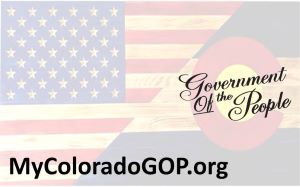Transcribed from a YouTube video.
Francis Scott Key, a lawyer from Baltimore, had just successfully negotiated a one-to-one prisoner exchange with the British and went down into the hold of the ship to tell the men that they would be free that very evening. Back on deck, the British Admiral told him they would still honor their commitment, but that it really wouldn't matter, because the entire British war fleet was 2 ½ hours away, and they had orders to destroy Fort McHenry. Francis Scott Key told the Admiral that Fort McHenry was a large fort, full of women and children - predominantly not military.
The Admiral commented that they had provided a way out for the people of the Fort - an ultimatum. If they would take down the American flag from its pole up on the rampart, the shelling would stop immediately. It would be understood as surrender, and the young United States would be under British rule.
Francis Scott Key told the men about the ultimatum and the hundreds of ship drawing near, and promised to shout down to them what was happening.
At twilight, the British ships arrived and unleashed a deafening, unceasing barrage. The prisoners - the men in the hold - prayed. They shouted up "What have they done with the flag? Do you see the Flag?" A bomb would explode near the rampart and Francis Scott Key would shout down "It's still there, I still see the flag!"
Three hours into the shelling, the Admiral came to Francis Scott Key and said "Your people are insane! What's the matter with them?! Don't they understand this is an impossible situation?!" Francis Scott Key told him that George Washington said the thing that sets the American Christian apart from all the other people in the world is that he will die on his feet before he'll live on his knees.
The Admiral said we have now instructed all the guns to focus on the rampart for the next 3 hours to take that flag down. He said "We don't understand something - our reconnaissance tells us that that flag has been hit directly again and again and again, and yet it's still flying." Mr. Key relayed the news to the men below. The barrage unleashed at that flag was unmerciful, but all Francis Scott Key could hear was the prisoners praying "God, keep that flag flying where we last saw it."
As the sun rose and the rampart above the smoky haze was lit, there it was! Completely non-descript, in shreds. The flagpole itself was at a crazy angle, but the flag was still at the top.
Upon landing, Mr. Key went immediately to Fort McHenry to see what had happened. What he found was that flag and that flagpole had taken repetitious direct hits and when hit had fallen. But men - fathers - knew what it meant for that flag to be on the ground and although knowing that all the British guns were trained on it, walked over and held it up, humanly, until they died. Their bodies were removed and others took their place. Francis Scott Key said that what held that flag pole and that flag at that unusual angle were patriot's bodies. He penned the song - Oh, say can you see"¦
The United States National Anthem
The Star Spangled Banner
(All 4 Verses)
Oh, say, can you see, by the dawn's early light,
What so proudly we hail'd at the twilight's last gleaming?
Whose broad stripes and bright stars, thro' the perilous fight,
O'er the ramparts we watch'd, were so gallantly streaming?
And the rockets' red glare, the bombs bursting in air,
Gave proof thro' the night that our flag was still there.
O say, does that star-spangled banner yet wave
O'er the land of the free and the home of the brave?
On the shore dimly seen thro' the mists of the deep,
Where the foe's haughty host in dread silence reposes,
What is that which the breeze, o'er the towering steep,
As it fitfully blows, half conceals, half discloses?
Now it catches the gleam of the morning's first beam,
In full glory reflected, now shines on the stream:
'Tis the star-spangled banner: O, long may it wave
O'er the land of the free and the home of the brave!
And where is that band who so vauntingly swore
That the havoc of war and the battle's confusion
A home and a country should leave us no more?
Their blood has wash'd out their foul footsteps' pollution.
No refuge could save the hireling and slave
From the terror of flight or the gloom of the grave:
And the star-spangled banner in triumph doth wave
O'er the land of the free and the home of the brave.
O, thus be it ever when freemen shall stand,
Between their lov'd homes and the war's desolation;
Blest with vict'ry and peace, may the heav'n-rescued land
Praise the Pow'r that hath made and preserv'd us a nation!
Then conquer we must, when our cause is just,
And this be our motto: "In God is our trust"
And the star-spangled banner in triumph shall wave
O'er the land of the free and the home of the brave!
In 1814, Francis Scott Key wrote the poem, Defense of Fort McHenry. The poem was later put to the tune of (John
Stafford Smith's song) The Anacreontic Song, modified somewhat, and retitled The Star Spangled Banner. Congress
proclaimed The Star Spangled Banner the U.S. National Anthem in 1931.
